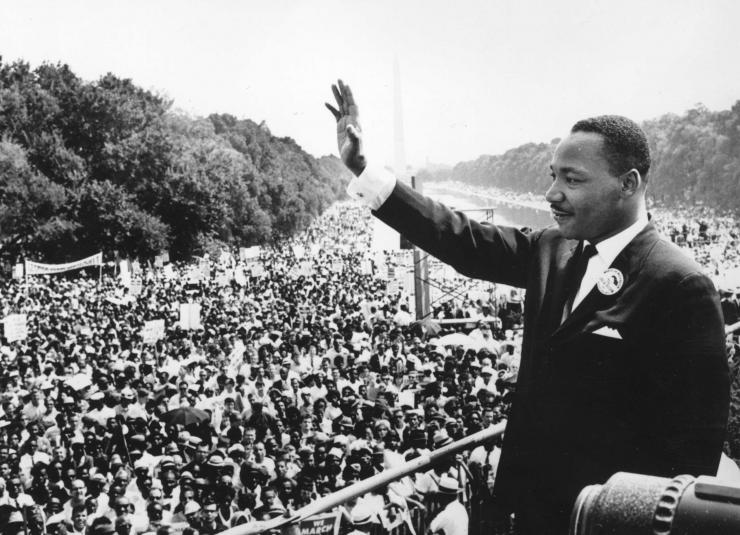In honor of Martin Luther King, Jr. and the voice he lent to South Africa
Today, in the United States, we celebrate the life of Martin Luther King, Jr. on the date of his birth on January 15. King was a civil rights leader, a proponent of non-violent activism, and spokesperson against racism and social injustice worldwide. For more than a decade, before his assassination in 1968 at the age of 39, he stood against racism and inequality even in the face of violent resistance to his message. His leadership, bringing together Americans from all communities, religions, and races to demand change, was recognized worldwide.
In 1964, at age 35 he received the Nobel Peace Prize. Dr. King lent his voice to speak out against racism in South Africa and in a speech he delivered in London on his way to Oslo to accept his Nobel Prize, he called for continued sanctions against South Africa’s apartheid government, and urged participants in the civil rights movement to continue their fight, both for their own rights and in solidarity to those in South Africa.
Several excerpts from his speech in London stand out. He acknowledges the international consequences of national policy.
“It is in this situation, with the great mass of South Africans denied their humanity, their dignity, denied opportunity, denied all human rights; it is in this situation, with many of the bravest and best South Africans serving long years in prison, with some already executed; in this situation we in America and Britain have a unique responsibility. For it is we, through our investments, through our Governments` failure to act decisively, who are guilty of bolstering up the South African tyranny.”
He also speaks to the challenges of non-violent methods, when they are met with violence.
“In our struggle for freedom and justice in the United States, which has also been so long and arduous, we feel a powerful sense of identification with those in the far more deadly struggle for freedom in South Africa. We know how Africans there, and their friends of other races, strove for half a century to win their freedom by non-violent methods. We have honoured Chief Lutuli for his leadership, and we know how this non-violence was only met by increasing violence from the state, increasing repression, culminating in the shootings of Sharpeville and all that has happened since.”
In the last years of his life, other black American leaders challenged non-violence as a methodology to achieve justice and equality for black Americans. Others challenged his attention to economic justice as a necessary solution to racial injustice. In his 1967 book, Where Do We Go from Here, Chaos or Community?, he wrote of the moral imperative to work all over the world to eliminate racism and economic exploitation. He spoke of the importance of the United States policies and diplomatic positions to address the economic consequences of racism and the need to address poverty on an international scale. He determined that world leaders had the ability and the resources to address these problems then. In honoring Martin Luther King, Jr. today we should continue to push our leaders to work globally toward just societies of opportunity and equality for all.
